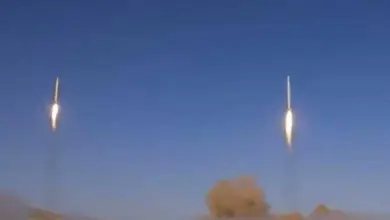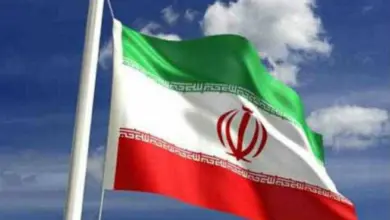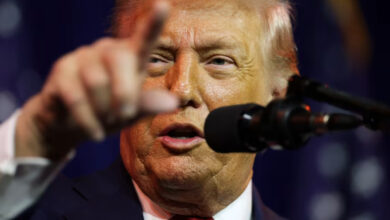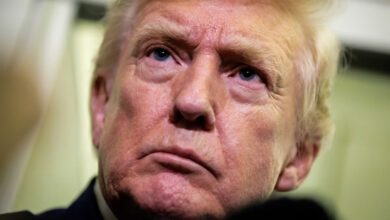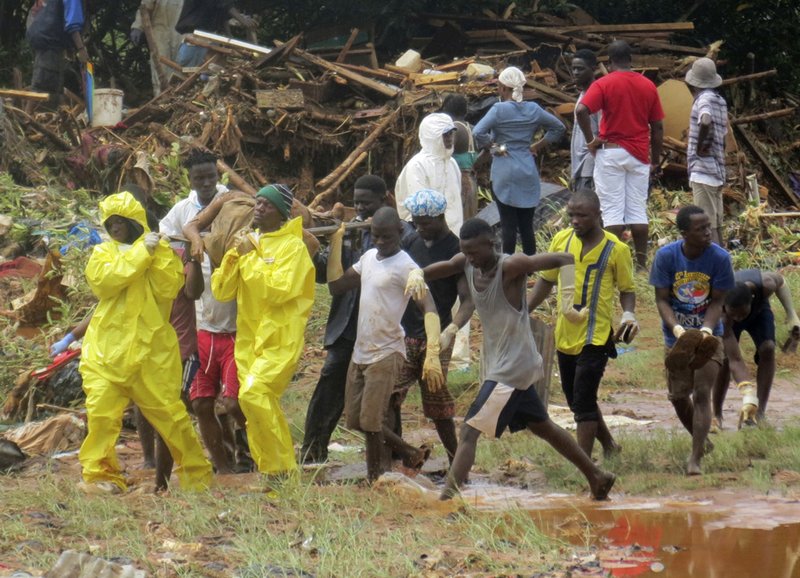
Elected on the nationalist slogan “America first,” President Donald Trump will use his debut address to the UN General Assembly to argue that individual nations should act in their own self-interest, yet rally together when faced with a common threat such as North Korea.
Trump, who has warned of “fire and fury” if North Korea does not back down, was expected to argue Tuesday that the dangers posed by Kim Jung Un’s pursuit of a nuclear weapons program should unite all nations. And he planned to issue not just warnings to North Korea but also rebukes to states that have enabled Pyongyang, though it was unclear if he would criticize China by name.
Addressing the General Assembly is a milestone moment for any president, but one particularly significant for Trump, a relative newcomer to foreign policy who has at times rattled the international community with his unpredictability. He has pulled the Unites States out of multinational agreements, considered shrinking the US military footprint in the world and deployed bombastic language on North Korea that has been criticized by other world leaders.
Trump frequently belittled the UN as a candidate and some within his White House believe the UN acts as a global bureaucracy that infringes on the sovereignty of individual countries. But the president was expected to stand before world leaders and a global audience and declare that UN members, acting as a collection of self-interested nations, should unite to confront global dangers, according to aides previewing his speech.
Beyond North Korea, crisis points the Republican president planned to address include Iran’s nuclear agenda, the instability in Venezuela and the fight against terrorism in Syria and elsewhere.
World leaders, many of whom will be seeing Trump in person for the first time, are bound to take the measure of the man and parse his every word for clues on how he views the US role in the world and within the UN
“It’s a tremendous opportunity because the world wants to work with the United States if there’s any way to do so,” said Jon Alterman of the Center for Strategic and International Studies. “He has an opportunity to show surprising openness.”
Trump tipped his hand Monday as he riffed on his campaign slogan when asked to preview his central message to the General Assembly: “I think the main message is ‘make the United Nations great’ — not ‘again.’ ‘Make the United Nations great.’”
“Such tremendous potential, and I think we’ll be able to do this,” he added.
In brief remarks to the UN on Monday, Trump chastised the world body’s bloated bureaucracy and budget, saying, “We are not seeing the results in line with this investment.”
But even with that scolding, Trump pledged to the UN that the United States would be “partners in your work” to make the organization a more effective force for world peace.
He praised the UN’s early steps toward change and made no threats to withdraw US support. The president’s more measured tone stood in sharp contrast to the approach he took at NATO’s new Brussels headquarters in May, when he upbraided member nations for not paying enough and refused to back its mutual defense pact explicitly.
While running for office, Trump had labeled the UN weak and incompetent. He has suggested it was “not a friend” to the United States or democracy while deriding it as “a club for people to get together, talk and have a good time.”
He thundered often about putting “America first,” and has withdrawn from what he considered multilateral agreements that he found unfavorable to the United States, such as the Trans-Pacific Partnership trade deal. He also announced his intention to withdraw from the Paris climate accord, which would leave the US one of only three countries outside the pact. Aides have since suggested Trump would be willing to renegotiate terms of the deal but European leaders have dismissed that approach.
Trump has also frequently questioned the value of a robust American presence around the world. When briefed on the government’s diplomatic, military and intelligence posts, the new president would often cast doubt on the need for all the resources.
Some aides have suggested that Trump employs “principled realism” — making global decisions based on the best outcome for the United States. The administration has also shied away from talk of nation-building or creating democracies through the use of the US military.
But Trump has softened his rhetoric about the United Nations since taking office and cheered the recent Security Council resolution that approved new sanctions against North Korea. Potentially foreshadowing a Trump argument, Brian Hook of the State Department said Monday that the UN could be useful as a “force multiplier” to “bring a global approach to global threats.”
“The president has been working very well with the UN Security Council,” said Hook, who praised Trump’s ability to deal with the world body and “leverage it for the purposes the UN charter created, to save succeeding generations from the scourge of war.”

